There are known knowns.There are known unknowns.But there are also unknown unknowns.Donald Rumsfeld
While some people think that Donald Rumsfeld was entertaining with his occasional forays into epistemology (the unknown unknowns), for other people his legacy is defined by the participation in the Iraq war, one of the biggest warcrimes in modern history.
Yet, aside from his contribution to US war atrocities Rumsfeld with his widely cited statement about unknown unknowns for sure was onto something. His words are an admission of our limited knowledge, a result of our cognitive and intellectual limits. The awareness of these limits in turn inevitably must lead to the assumption, that only one’s own mind is sure to exist, an epistemological position commonly known as solipsism. In other words: Anything outside one’s own consciousness is unsure; the external world and other minds cannot be proven beyond doubt and they might not even exist outside our consciousness.
Solipsism is an important ingredient of many philosophies, including rationalism (cogito, ergo sum), idealism, nihilism, materialism, and positivism. So it is no big deal to endorse this view and Rumsfeld was not a trailblazer in philosophy by any means.
Back to the unknown unknowns, whose existence implies that there are certainly (and that is probably the only thing which is certain, though one could rightfully argue that even this certainty may be illusory in the end) few certainties, a lot uncertainties, and an unknown number of uncertain uncertainties. Which means in short, that all analysis, interpretations, and predictions are prone to fallacies, delusions, errors.
Which implies, that there is a high probability of wrong conclusions and forecasts.
And as everybody, who’s memory lasts long enough to compare headlines and social media memes over a period of more than a few weeks, can confirm, conclusions and forecasts are indeed most times wrong.
And yet, despite an evident dismal record of accuracy, political analysis, interpretations, and predictions are made by statesmen, experts, pundits, augurs, and fortune-tellers from all factions and denominations around the clock over all media channels casually and with impunity.
Why can they do that?
Because the public memory is even shorter than the public attention span and everything said today is completely forgotten tomorrow. The few lone dissenters pointing at the false prognosis are drowned by the media herd stampeding to the next story, which as always customarily will be garnished with more cheap analysis and predictions which will be buried and forgotten the next day.
Bad news, dark days, hard times
There are a lot of people who lie and get away with it, and that’s just a fact.
Donald Rumsfeld
Donald Rumsfeld
At the moment it is nearly impossible to get an accurate view about the Ukraine and how things will develop is anybodies guess. The economy undoubtedly is in bad shape and one wonders why it has not already collapsed.
The severity of the situation is illustrated by a proposed legislation “On Ukraine’s Financial System During the Special Period,” which contains the following provision:
“In the event of a martial law and a moratorium on disbursement of bank deposits such deposits may be used in order to satisfy the needs of the state during the special period by including such a proportion as will be determined by the Cabinet of Ministers into the state budget.”
The deposits which are used in this manner will be added to the national debt, and the owners of the deposits will be issued state bonds. The government will fulfill obligations to the bond holders after the special period is finished, using the national budget. Any hard currency deposits will be automatically converted into hryvnya using the official exchange rate, and will be returned to the owners in hryvnya.
Ukraine’s Minister of Energy and Coal Industry Vladimir Demchishin just told the parliament, that Ukraine imports electricity from Russia at a “very adequate price“.
From Russia, a country which Ukraine intends to declare war against! (Beside that, from what funds did the Ukraine pay?)
Ukraine’s economy is so dependent on Russia’s that it still trades more with Russia than with any other country. From January-October 2014, Ukraine exported about 8.8 billion US$ worth of goods and services to Russia, while importing roughly 11.2 billion US$. Poland and Germany, the two countries that are supposed to be the new cornerstone of Ukraine’s economic future, accounted for 3.6 billion US$ of exports and 6.9 billion US$ of imports. Russia’s share of Ukraine’s exports and imports was 19 and 25 percent respectively, far larger than that of any other single country.
A few numbers:
Industry production declined 20 percent, export losses amounted to 55.5 billion US$, export of Ukrainian goods to the EU increased by only 2.1 percent despite a preferential trade regime since April 2014 (the Ukrainian government optimistically estimated that the removal of customs dues would increase exports to the EU by a third).
Automobile sales in January were 77 percent lower than January 2014 and sales for 2014 were 57 percent down on the previous year. 44 percent of people working in the automobile industry lost their jobs last year. Ukrainians have three times fewer cars than Russians and the average age of cars is 19-1/2 years.
Inflation in 2014 was finally declared to have been 25 percent, forecasts for 2015 are from 17 percent upwards. In January the inflation rate was 28.50 percent.
The National Bank reported international reserves of a mere 6.4 billion US$ at the end of January. The hryvnia is trading at 25.25 to the dollar, it has lost 66 percent value against the dollar in one year.
The Ukraine needs 20 billion US$ till the end of the year just to pay maturing debt, but it is not clear where the money shall come from. The European Union, just skirmishing with Greeks new government, will have a hard time to open the purse for Ukraine while letting Greeks starve.
Will Ukrainians starve? Unemployment Rate is still a modest 8.90 percent, but average monthly wages are 4012.00 UAH = 160 US$, while consumer prices are rising to Western European levels (at least one point where the Ukrainian economy is fast catching up with Western standards).
Maybe it is not a bad idea for Ukrainians to begin growing food by themselves.
Fort Russ recently published an article “Lebensraum 2.0: Ukraine’s Economic Folly,” in which economist Vasily Koltashov argues that the bet on agriculture and euro-integration was wrong.
He says that the EU has not managed to fix its own economic problems. Right!
He says that Ukrainians are so impoverished that they cannot afford to buy European products. Right!
He says that Kiev and EU put their emphasis on agriculture and the elimination of industry and he thinks that is wrong. His objection is debatable.
If there would have been Ukrainian politicians or civil servants deserving to be categorized as strategists, and if there would have indeed been a strategy to strengthen agriculture this would have been a wise move because food scarcity will be an increasing global problem in the coming years.
It would have been even more reasonable and sensible to support small farmers and to distribute land to everybody who wants to start farming or gardening. By encouraging subsistence farming and gardening the Ukraine would be able to reduce imports and lift the wellbeing of the population even as Western luxury is out of reach for most persons.
The Ukraine has a fertile soil, and despite severe chemical and radioactive contamination in certain places there are wide areas where nature is still intact. The Ukraine can feed its population, this is a big difference to Greece, which is a wasteland (save the stunningly beautiful mediterranean islands, most owned by the superrich) and an ecological catastrophe.
While in Greece 30 percent of the land is threatened by desertification and not more than 24 percent are suitable for agriculture, Ukrainian soil is still intact and able to feed not only the 40 million people who still have not left for safe areas, but many others too. Ukraine was in the last three years the main supplier of wheat to Syria.
Ukraine is known as the region’s breadbasket thanks to its black “chernozem” soil, which is highly fertile and rich in organic matter called humus. Covering more than half the landmass of Ukraine, chernozem soil offers exceptional agronomic conditions for the production of a large range of crops, especially cereals and oilseeds.
Climatic conditions are generally favorable in Ukraine, though climatic variability — which is expected to increase with climate change — is a considerable risk.
Soil erosion is a problem and over the last decades, chernozem soil across the country has been increasingly degraded by poor land management and industrial agriculture. This process is accelerating. It is estimated that over 500 million tons of soil are eroded annually from arable land in Ukraine, resulting in a loss of fertility in over 32 million hectares of soil.
No-tillage (no plowing) agriculture would reduce soil erosion, small scale agriculture without chemical fertilizer and pesticide use would increase the humus layer. Reforestation, hedges and thickets everywhere in-between would help stabilize the climate and protect the soil against extreme weather events.
The Ukraine could easily tap into the growing demand in Europe for organic (meaning not with glyphosate and 2,4-D poisoned) food, and growing crops without agrochemicals would have the additional benefits of preventing further soil erosion and saving money.
While this would be the most sensible strategy, in the Ukraine there are no sensible strategists in influential positions and ideas like the one just mentioned are beyond the intellectual scope of the oligarchs who run the show in Kiev.
The lack of insight and strategic thinking doesn’t matter anyway, because the fate of Ukraine is not anymore decided in Kiev, but in Washington, Brussels, Berlin, and at the headquarters of the big multinational corporations. The strategists of these entities of course have a plan, it is the “masterplan” which was already mentioned here in earlier blog posts:
First let the Ukraine go bankrupt. This would harm foreign investors and lenders, mainly Russia, France, Austria, Italy, Germany, and Hungary. Around 34 percent of Ukraine’s inbound investment comes from Germany, the Netherlands, Austria and the UK. US companies are not involved (except Templetons 4.6 percent stake in Ukraine bonds), the USA has so far delivered a meager one billion US$ to help Ukraine and thats it, the Americans will send more weapons but not write any more checks.
With or without bankruptcy the IMF will lend some further billions but impose strict austerity measures (cutting wages, pensions, subsidies, raising prices, reducing or eliminating public services). The economy will contract further, state revenue will decline further, qualified workers, engineers, technicians, scientists will emigrate and be welcomed in the West, where they will work for comparatively low wages and consequently decrease the influence of local unions. This is a win-win for the corporations.
The big Western companies will wait till the government is bankrupt and then buy all public assets for cheap. Land, water, infrastructure, buildings, everything will be owned by Western companies. The oligarchs will get their cut in the deal and they will be allowed to pillage the Ukraine (or what is left of it) further without any interference.
This is a clever plan but it is based on many assumptions which could be incorrect. All mentioned economic numbers and all accompanying considerations and explanations are only half of the picture, because half of Ukraine’s economy is informal.
There is corruption and crime, a sad but nevertheless far-reaching aspect of the informal economy.
There’s a black market for nearly everything, there are the small deals without receipt, there is barter, neighbors helping neighbors, farmers markets, subsistence farming and gardening.
Many remote communities can survive without the centrally controlled support systems and many are glad when they are left alone by the authorities. One shouldn’t underestimate the resilience and the ingenuity of people when they are left to their own devices.
Considering all this it is not a given, that the Ukraine is a fruit easy to reach and ripe to be plucked by the disaster capitalists from the various equity firms and investment banks. National pride and resentment against outside interference could easily prevent Ukrainians to roll over and become debt slaves of and share croppers for global investment firms.
It will come out one day or the other how Ukrainian society is coping with the current trials but at the moment the final outcome is everybody’s guess.
One more point:
There were numerous comments by the usual cold war warriors that Ukraine is still suffering from the legacy of Soviet mismanagement.
GDP per capita PPP (Gross Domestic Product per capita adjusted by purchasing power parity) is not necessarily equivalent to the wellbeing of the population, but is often used to assess the economic progress of a country. GDP per capita PPP in Ukraine reached an all time high of 10507.22 US$ in 1990 (before the dissolution of the Soviet Union), and fell sharply after gaining independence to 4469.95 US$ in 1998. It only slowly climbed to 8508.01 US$ in 2013, still far below Soviet Times.
These are IMF statistics and the only conclusion one can reach from the numbers is, that the introduction of capitalism and the independence from Russia were an economic catastrophe for Ukraine.
Fertile killing fields
Death has a tendency to encourage a depressing view of war.
Donald Rumsfeld
Donald Rumsfeld
It is crazy cold and the snow is crisp and has turned to ice in many places. Often there is a thin layer of snow over black ice and one has to be careful not to slip and fall. This is the time when old people fall down on the slippery ways and break a limp, causing them to spend some days in the hospital where they catch pneumonia, MRSA, or other difficult to treat infectious diseases. Usually they never completely recover from these infections and die in the end.
Winter is the time when the weak and ailing individuals are eliminated, this is true for animals and humans alike.
The old people in Donetsk and Gorlovka (Horlivka) are less likely to slip and break bones because they can rarely go outside because of the constant bombardment by Ukrainian artillery. And if they slip and get hurt they will not stay in hospital that long because all the hospital beds are occupied with badly injured victims of shelling. The hospitals are also deliberately targeted with artillery shells and missiles, so it is better not to stay there longer than absolutely necessary.
The old people though are not safe in the basements of the houses or in the bomb shelters either. There is no heating and often they have run out of food. The Ukrainian army tries to destroy as much infrastructure as possible, hitting power lines, pipes, and gas pumping stations.
Old people in Donetsk and Gorlovka will not die from pneumonia or MRSA, they will rather starve or freeze to death.
But their death will not mentioned in Western media and also the victims of artillery bombardments will not be mentioned. They will only be mentioned if there is a chance to blame pro-Russian separatists for the carnage. Sometimes when it is not possible to ignore an especially deadly attack the Western press will reside to prefabricated phrases like: “rebels accuse the government for the shelling,” which shall make it clear for the reader that these accusations are groundless and the rebels just killed their own people for whatever reason.
How many people died until now is one of the unknowns and uncertainties of the Ukrainian war. The often cited number of 5,000 is even by the OSCE and UN considered as a gross underestimation. If one sums up statistics from hospitals, morgues, funeral notices, battlefield reports, insider hints, the number of 20,000 seems more accurate and plausible.
4,000 civilians
4,000 rebel militias
12,000 Ukrainian soldiers
4,000 rebel militias
12,000 Ukrainian soldiers
Why do they have to die?
The Donbass is a coal mining area and since the late 19th century, it has become a heavily industrialized territory suffering from urban decay and industrial pollution. Soil and water are contaminated by factory emissions and the waste from mines and steel plants. Several chemical industry waste grounds in Donbass have become undermaintained and desolate, they pose a constant threat of major contamination to the environment.
The Donets Basin has a colder and more humid climate than the rest of Ukraine. Fog and clouds are common and there are only few sunny days, especially in winter. The vegetation is mainly steppe and soil erosion has led to desertification in wide areas.
Most social indicators, especially life expectancy, health, birth rates, drug abuse, are worse than in western Ukraine, the industry is interlinked with Russia and is not competitive in the Western European market. The infrastructure is in disrepair and has not been upgraded for decades, with the exception of the Donetsk airport, which was rebuilt in 2012 for 860 million US$. But the airport is completely destroyed now.
Why do the rulers in Kiev not just let the eastern provinces go and let Russia pickup the bill of rebuilding the war-ravaged land?
Why don’t they take the chance to get rid of the majority of despised ethnic Russians with one stroke? Why don’t they split the country in a civil and painless way like the Czechs and Slovaks in 1993?
Donetsk and Luhansk, probably also Kharkiv and Zaporizhia, will never again be an integral part of the Ukraine, too much blood has been shed and too much hate built up. As part of the Ukraine these oblasts would be occupied territory with a resenting, disloyal, uncooperative population, and a never-ending bloody insurgency.
The ruling oligarchs in Kiev may be reckless, delusional, psychopathic, but they know that the war is damaging their business, they know that they could end with nothing (save the obligatory secret accounts in Switzerland or Cayman Islands). But the decision to wage war was not theirs and the decision to destroy as much of Donbass as possible was not theirs. This decisions were made in Washington and the war is not about the eastern provinces but about Russia.
The Donbass has to be devastated to make the rebuilding more costly for Russia.
In this war Russia is hurt and NATO just has to send weapons and advisors/trainers. This military help, even if it has to be significantly increased, is small change compared with the efforts in Iraq and Afghanistan. In Donbass Ukrainians bear the brunt of the pain, the Americans have just to give the directives.
Clever again.
Resisting the slaughter
Poroshenko advisor Yury Biryukov posted on Facebook:
Got the first report on the implementation of the plan of the fourth wave of mobilization. Across the country, in each region. AND I DON’T GET IT!
I don’t understand the phrases, do not understand the facts.
… The heads of 14 rural councils of Ivano-Frankivsk oblast refused to accept the summons for notifications.
… 57% of notified conscripts in Ivano-Frankivsk region did not arrive for medical commission.
… 37% of notified conscripts of Ivano-Frankivsk region have left the territory of Ukraine.
… Heads of rural councils of Ternopil region openly sabotage events of notification, in case of appearance in the area of representatives of RVC – warn the residents of their own and surrounding villages.
… the head of the village council of Konyukhi, Kozovsky district reported that local people rented 2 buses and left for the territory of the Russian Federation.
… in the township of Colchino, Mukachevo district of Transcarpathian region, out of 105 people the summons were presented to only three: 9 persons do not reside at the address of registration, and 93 people during January left for “seasonal agricultural work”.
… over the last 30 days the state border in the Chernivtsi region was crossed by 17% of the total number of conscripts of the region. From unofficial sources it is known that hostels and motels in the border region of neighboring Romania are completely filled with Ukrainian men evading conscription.
… 19% of notified conscripts of Volyn oblast refused military service on religious grounds, although in previous years the percentage of rejects for this reason did not exceed 0.7 percent.
… 57% of notified conscripts in Ivano-Frankivsk region did not arrive for medical commission.
… 37% of notified conscripts of Ivano-Frankivsk region have left the territory of Ukraine.
… Heads of rural councils of Ternopil region openly sabotage events of notification, in case of appearance in the area of representatives of RVC – warn the residents of their own and surrounding villages.
… the head of the village council of Konyukhi, Kozovsky district reported that local people rented 2 buses and left for the territory of the Russian Federation.
… in the township of Colchino, Mukachevo district of Transcarpathian region, out of 105 people the summons were presented to only three: 9 persons do not reside at the address of registration, and 93 people during January left for “seasonal agricultural work”.
… over the last 30 days the state border in the Chernivtsi region was crossed by 17% of the total number of conscripts of the region. From unofficial sources it is known that hostels and motels in the border region of neighboring Romania are completely filled with Ukrainian men evading conscription.
… 19% of notified conscripts of Volyn oblast refused military service on religious grounds, although in previous years the percentage of rejects for this reason did not exceed 0.7 percent.
This post has since been removed from the Facebook page of Yury Biryukov.
Anton Gerashchenko (advisor to the Minister of Internal Affairs Arsen Avakov) posted on Facebook:
Tomorrow Mariupol will hold a rally against mobilization. Disaster!
I would like to calm everyone down. The situation is under control of the Ministry of Interior and SBU.
Each person who tomorrow comes to the rally against mobilization, will be detained for several hours for questioning, and after collecting the finger prints and photographing, will be let go FOR NOW.
Reminding, that I and my comrade, Boris Filatov, have submitted a bill about criminal liability for public calls for sabotaging mobilization.
This law is designed not against the mothers, who let their sons go and defend their motherland with tears in their eyes.
It is directed against paid and unpaid provocateurs, as well as brainwashed idiots, who under the orders of Russian special agencies, create panic and stir hysteria in the society, in order to brake the will of the Ukrainians to victory.
It will not work!
As soon as Verkhovnaya Rada and the President will support my and Boris’s law, all provocateurs calling for the sabotage of mobilization will be arrested!
I would like to calm everyone down. The situation is under control of the Ministry of Interior and SBU.
Each person who tomorrow comes to the rally against mobilization, will be detained for several hours for questioning, and after collecting the finger prints and photographing, will be let go FOR NOW.
Reminding, that I and my comrade, Boris Filatov, have submitted a bill about criminal liability for public calls for sabotaging mobilization.
This law is designed not against the mothers, who let their sons go and defend their motherland with tears in their eyes.
It is directed against paid and unpaid provocateurs, as well as brainwashed idiots, who under the orders of Russian special agencies, create panic and stir hysteria in the society, in order to brake the will of the Ukrainians to victory.
It will not work!
As soon as Verkhovnaya Rada and the President will support my and Boris’s law, all provocateurs calling for the sabotage of mobilization will be arrested!
There will have to be many arrests made because resistance to the war is increasing. Eligible men hide or flee to neighboring countries (preferable Russia), recruiters are harassed and chased out from villages. The hostels in the border areas of neighboring Russia and Romania are overcrowded with draft evaders.
In the Dnipropetrovsk region, which is thought to be solidly anti-Russian, thousands of men are hiding from the draft and more than 2,000 people who were drafted did not show up and simply evaporated.
In the Trancarpathia region in western Ukraine, entire villages have scattered across various borders to escape conscription. The head of the village council of Kosiv district in Ivano-Frankivsk region reports that the entire population of the village booked buses and moved to Russia to wait out the war.
On January 24, the residents of the villages Melniki, Zatishye, and Pishcha in the Volhynya region blocked cars of the district administration as they arrived. Inside the vehicles were representatives of the local administration and the military recruitment office, aiming to deliver call-up papers for the military mobilization. Protesters forced the authorities to tear up the papers. They were then allowed to leave and the people went home.“
In some villages in the Ternopil region, the heads of local councils did not participate in the distribution of call-up papers and tipped off residents about the arrival of military recruitment officers to give them the opportunity to hide or flee.
When the population of Kulevchi in the Odessa region learned that 240 call-up papers were en route to be served, within minutes 500 people gathered on the village square. Six officers of the recruitment authority arrived with the papers but they were met with hostility. When officials declared that refusal of conscription is punishable by criminal prosecution, people began to shout “No war” and “We want peace”. They reminded the officers that Ukraine has not declared martial law and that the Minsk ceasefire agreement of last September has not been formally renounced by the Ukraine government. They called the new wave of military mobilization illegal and the recruiting officers were forced to leave the village.
In the village of Limansky in Reni district, a representative of the military recruitment office arrived with call-up papers accompanied by two armed gunmen. It nearly cost them their lives, because 200 villagers surrounded them and attempted to lynch the three. Deputy Chairman Ivan Stadnikov of the Reni district state administration and Military Commissar Igor Skrypnik immediately went to the village. After difficult negotiations, a compromise was reached. But then the local residents seized the call-up papers, defiantly poured gasoline on them and set them alight — right before the eyes of the officials who had brought the papers to the village.”
In Transcarpathia criminal charges have been filed against 47 fighters of the 128th Brigade for refusing to return to the Donbass area. The Military prosecutor accuses them of “absence in military unit or place of service without leave.” All of them were fighting in the east from May to September.
These are the tales of heroism one hopefully will see more often. The deserters, the conscientious objectors, the people who flee or hide from the draft are the sane ones, they are the heroes. The people who flee the fighting, who pack their things and leave the war zone are the heroes. The refugees are heroes, they are the sensible ones, realizing that it is better to lose one’s home than to lose one’s life.
The people who don’t leave, who take up arms and kill, they are either fools or psychopaths and criminals.
=========
Well, and if there is no place to go to?
And if you have to defend people who cannot leave because they are sick or impaired?
And if you are cornered and your life is threatened?
And if you have to defend people who cannot leave because they are sick or impaired?
And if you are cornered and your life is threatened?
=========
Let it be enough for today…
Further reading: There is no meltdown
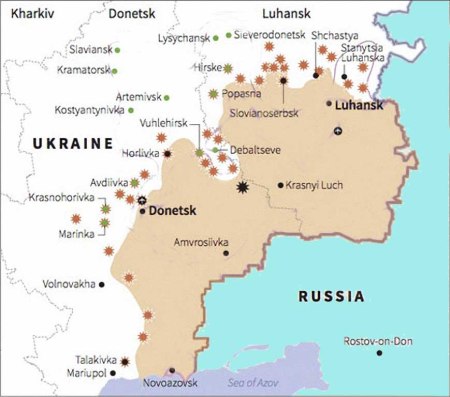
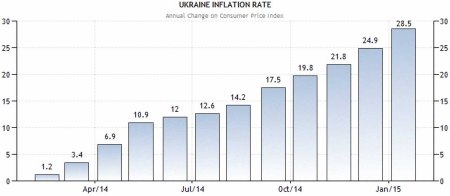
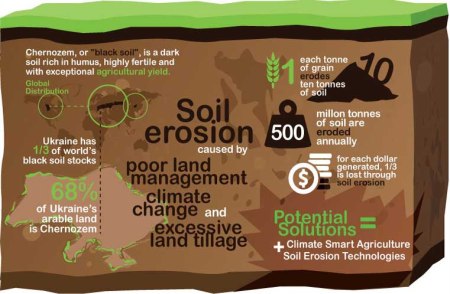

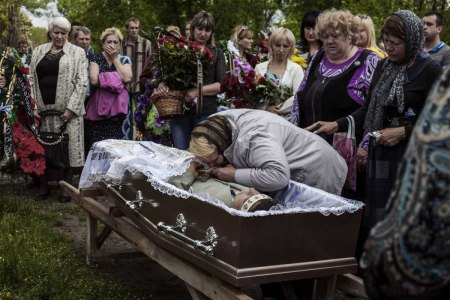
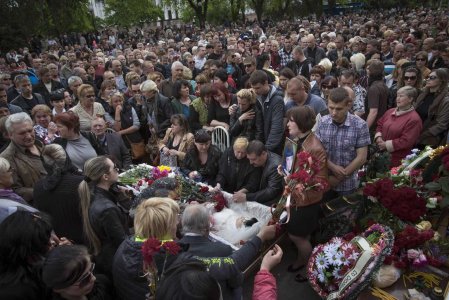
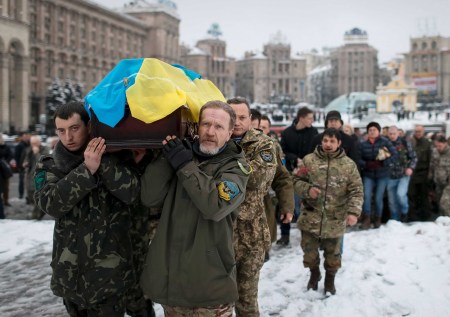
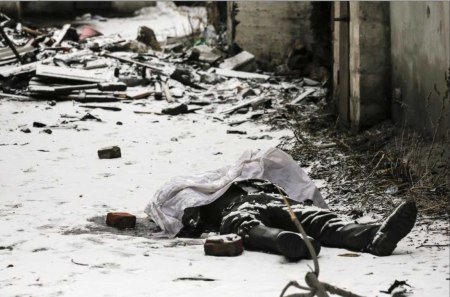
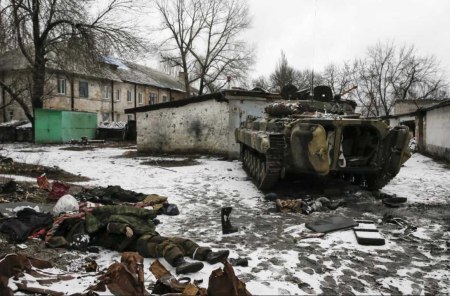
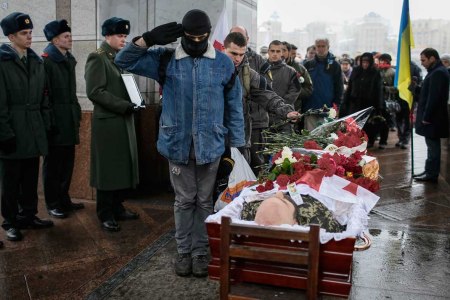
Keine Kommentare:
Kommentar veröffentlichen